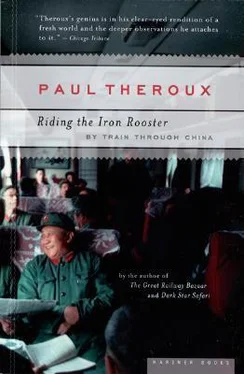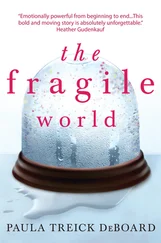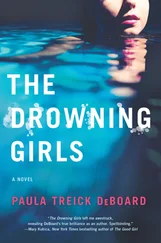"My problem is that I have zlotys but not many dollars."
"I prefer dollars," she said. "We need dollars. In Poland it is impossible to do anything without dollars."
"Where do you get the dollars?"
"From you," she said.
"Not tonight."
I left, looked at the gloomy shop windows, marveled at the wide, empty streets, and went back to the Forum.
My challenge the next day was first to withdraw some Polish zlotys from Bank Handlowy — royalties that I could not take out of Poland; and then to spend them all before the train left. The bank opened at nine-thirty, the train was going two hours later. I estimated that I would have about an hour and a half to spend whatever amount I withdrew. In New York it would not have been difficult. But this was Warsaw.
I knew only my account number. The bank was in a modern building, a steel and glass tower, the top of which was wreathed in fog. It was a rainy day, and it seemed to me that I was on an absurd errand. But it would have been more foolish to leave my Polish money where it was and not try to withdraw some. I had vowed that I would never give it to Lech Walesa, leader of the Solidarity movement, because he had once publicly boasted that he had never read a book in his life. The last thing that man deserved was my book royalties.
I entered the bank. The entire ground floor was an open-plan office — hundreds of employees tapping on computers, calculators, typewriters, or else pushing stacks of tattered money around. Just looking at the enormity of the operation made me feel I didn't have a chance.
At the marble counter I explained to the woman that I had an external account and wanted to make a withdrawal.
"Please write your account number."
I did so on a scrap of paper.
"Passport, please."
I handed it over.
Without hesitating, and without leaving the counter, the woman stretched out her arm and fished a small wooden box, like an old cigar box, from beneath the marble slab. She glanced at my account number and plucked another scrap of paper out of the small box.
"How much do you want to withdraw?"
"How much have I got?"
"Two hundred and sixty thousand zlotys."
"I'll have a hundred thousand."
Six hundred dollars at the official rate.
The woman passed the scrap of paper she had initialed to the clerk, who called me over and counted out the money. The whole operation had taken less than five minutes.
My pockets were now bulging with Polish money.
"You could buy half a car," Gregory the taxi driver said, when I told him my problem. "You could buy a hundred thousand kilos of ham."
Gregory spoke perfect South Jersey English — he had worked for an Ocean City trucking company for two years. But then he had returned to Warsaw. He explained, "Warsaw is miserable, yes, but Warsaw is my city. My father was born here, my grandfather was born here, and so… and so…" He shrugged. "You like this song?"
A bouncy little ditty crackled from his car radio. I said yes, it was melodious.
"I sing it for you."
I thought, forget it. Cry, little woman, cry!
Go ahead and cry!
Cry, little woman, cry!
"Good, eh?"
"Wonderful," I said. "Maybe I could buy an antique with my money."
"The shops open at eleven-thirty," he said. "You'll miss your train."
"What about amber— bursztyn? "
"Very nice. We go to old city."
But the jewelry shops didn't open until ten-thirty. While we lurked in the old Warsaw — cobblestone streets, medieval buildings, the ramparts of a fort — Gregory told me he wasn't a member of Solidarity. "I don't need a party. My wife is my party. My kid — my family. That's my party."
A man accosted me and asked if I was interested in buying a very rare stamp of the German occupation. He showed me a head of Hitler with a Krakow postmark, and another stamp — Polish — depicting saints or angels, overprinted with swastikas.
"How many stamps have you got?"
From under his jacket he produced a stamp album — about twenty pages. He riffled through: more Hitlers, more angels, more overprinting and interesting postmarks; about 400 stamps.
"I'll give you ten thousand zlotys for it."
Without a word he handed over the album and took the money.
We passed a butcher shop. I said, "I could get some sausages."
"You need one of these." He showed me his meat ration book. He was allowed 2.5 kilograms of meat a month. That was his May book — with some coupons missing. He had used up his April book, though today was only the 16th of April. "Not much meat in Poland. We have to sell it — for dollars. I've seen more Polish ham in Ocean City than I've seen in Poland."
"Why not become a vegetarian?"
"No, no," he said, showing me his sharp carnivore's teeth. "And you know, Poles hate everything except cow meat and pig meat. They don't eat lamb, they don't eat chicken."
I said that surely there were some vegetarians in Poland.
He only knew one, he said — an old lady, whose doctor had forbidden her to eat meat. It seemed to me characteristic of Polish conservatism that they should be unwavering in their eating habits, and would spend all morning waiting in line in front of a butcher shop (Warsaw was full of such lines) instead of developing a taste for quiche or ratatouille. It occurred to me that people who refused to change their diet were not only stubborn and self-defeating but probably very superstitious as well.
When the jewelry shops opened I bought some amber, and on the way back to the hotel a half-dozen bottles of Polish champagne, some yellow caviar, pickled mushrooms and sardines. I paid Gregory and tipped him for helping me. I still had twenty-thousand zlotys left and nothing to buy with them.
It was then that I remembered Ewa and Woityek, from the train. Send us a postcard from Mongolia, Ewa had said, and scribbled her address. I put the remainder of the zlotys into and envelope with a note saying This is for Woityek and sent it to them. It was a wet day in Warsaw, rain completing the picture of utter misery; and rain was sweeping against the train as we set off for Moscow.
I had a crate of Polish provisions and decided to have a party in my compartment before we got to Brest Litovsk. I had invited Ashley, Morthole, Chris, and the less inquisitive members of the group.
We drank most of the champagne before we got to the Soviet border. Ashley was drunk and put his face against mine and said, "I've got a bet with Morthole that you're with the State Department."
"You lose," I said.
At the border, the train was searched by customs officials. One of my champagne bottles blew its cork while the customs woman was in my compartment, but she didn't blink. She was looking for guns, books, money, jewelry. "No guns," I said, and showed her what I had.
In the meantime the wheels of all the railway cars were changed — the wheel assemblies unhitched and wide-gauge ones attached.
'They took two of our guys!" It was Morris Least, yelling. He complained to the tour leader. "The Russians just marched them away." Morris was breathless and frightened. And yet he had been expecting this.
"I'm keeping my head down," Kicker said.
They had taken Bud Wittrick for questioning. He had apparently been flaunting a copy of The Economist. Was that a crime? And Rick Westbetter had been cleaning the windows of his compartment with the squeegee he had brought from Maryland. He had to be a spy — why else would he want clean windows?
Just before we set off for Moscow, Wittrick and Westbetter were returned to us, and over dinner they told stories of their captivity and interrogation.
I drank the last of my Polish champagne and read more of Old Goriot, and then went to sleep. We passed through Minsk and Smolensk in the night. I woke to snow on the fields and ice in the ditches beside the tracks. The dwellings were wooden huts and bungalows, and the bumpy roads showed wheel tracks through the mud-splashed ice crust.
Читать дальше












